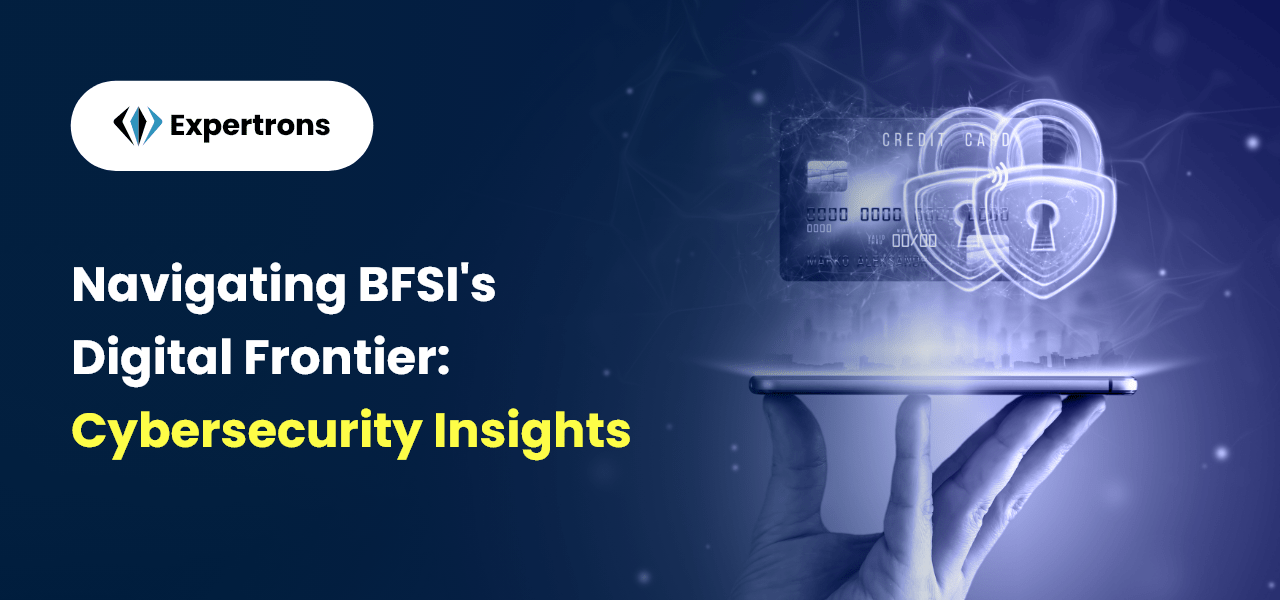Introduction
In the ever-evolving world of Banking, Financial Services, and Insurance (BFSI), digitization has brought both convenience and challenges. This article explores Cybersecurity in BFSI, the linchpin in defending against digital threats and ensuring secure online transactions.
Cybersecurity in Banking: Defending the Digital Realm
As online transactions surge, Cybersecurity in banking becomes pivotal. Institutions fortify defenses to protect against cyber threats, securing both customer and institutional assets. As technology evolves, so do the threats and vulnerabilities that banks face in the digital realm.
Here are some key aspects of cybersecurity in banking:
1. Data Protection
Banks handle vast amounts of sensitive customer data, including personal information, account details, and transaction history. Protecting this data is paramount to maintaining customer trust and complying with data protection regulations.
2. Authentication and Access Control
Implementing strong authentication mechanisms, such as two-factor authentication (2FA) and biometrics, helps ensure that only authorized individuals can access sensitive systems and information. Access control measures limit user permissions based on roles and responsibilities.
3. Encryption
Encrypting data both in transit and at rest is crucial. This helps prevent unauthorized access even if data is intercepted during transmission or if physical devices are compromised.
4. Firewalls and Intrusion Detection/Prevention Systems
Firewalls act as a barrier between a bank’s internal network and external threats. Intrusion detection and prevention systems monitor network traffic for suspicious activities and take action to prevent or mitigate potential threats.
5. Regulatory Compliance
Banks must adhere to various regulations and standards related to cybersecurity, such as the Payment Card Industry Data Security Standard (PCI DSS) and the General Data Protection Regulation (GDPR). Compliance helps ensure that security measures meet industry standards and legal requirements.
Financial Data Protection: The Core Imperative
Financial data protection stands as the core imperative in the modern digital landscape for the banking and financial sector. As financial institutions increasingly rely on digital platforms and technologies, safeguarding sensitive information has become paramount.
The core imperative of financial data protection extends beyond compliance with regulatory standards to the very essence of preserving trust and ensuring the integrity of the financial system.
Robust encryption protocols, stringent access controls, and continuous monitoring are the cornerstones of a comprehensive financial data protection strategy. The consequences of data breaches in the financial sector are not merely financial; they extend to the erosion of customer confidence and the potential for far-reaching systemic impacts.
Also read, The Importance of Soft Skill Development: Top 6 Soft Skills for a Successful BFSI Career
Secure Online Transactions: Customer Peace of Mind
Customers entrust financial and personal information during online transactions, and ensuring the security of these exchanges is paramount. Robust encryption, secure sockets layer (SSL) protocols, and multi-factor authentication contribute to a fortified defense against cyber threats.
Beyond the technical aspects, a secure online transaction environment fosters a sense of trust and confidence among consumers, encouraging them to engage in digital transactions with peace of mind. The intersection of convenience and security is where customer satisfaction flourishes, reinforcing the importance of continuous advancements in cybersecurity measures to safeguard online transactions.
As businesses and financial institutions invest in cutting-edge security technologies, they not only protect sensitive data but also cultivate a resilient foundation for customer trust and loyalty in the digital landscape.
Collaboration for Resilience: Industry Initiatives
In the dynamic landscape of Banking, Financial Services, and Insurance (BFSI), collaboration emerges as a linchpin for resilience through industry initiatives. Recognizing the shared challenges posed by evolving cyber threats, stakeholders within the BFSI sector are increasingly joining forces to bolster their collective defenses.
Collaborative initiatives focus on the exchange of threat intelligence, best practices, and technological innovations. This collaborative approach not only enhances the industry’s ability to detect and thwart cyber threats but also fosters a culture of proactive resilience.
By sharing insights into emerging risks and vulnerabilities, BFSI entities can stay one step ahead of cyber adversaries, fortifying the industry as a whole against the ever-changing cybersecurity landscape. Ultimately, collaboration becomes a powerful tool for ensuring the continued stability and security of the BFSI sector in the face of digital challenges.
Conclusion
In conclusion, navigating the BFSI’s digital frontier demands a proactive and holistic approach to cybersecurity. As financial institutions embrace digital transformation, the imperative to fortify defenses against cyber threats becomes more pressing than ever. From understanding the evolving threat landscape to adopting cutting-edge technologies, such as AI and encryption, the BFSI sector must remain vigilant. Employee training, compliance with privacy regulations, and collaborative industry initiatives all contribute to a resilient cybersecurity posture. The journey into the digital frontier is a collaborative endeavor that requires continuous adaptation and innovation.
Frequently Asked Questions
Cybersecurity in BFSI centers on defending against digital threats and ensuring secure online transactions, crucial for safeguarding both customer and institutional assets.
The industry adapts through robust measures, including state-of-the-art infrastructure, security audits, and employee training, to stay ahead in the continuous battle against evolving cyber threats.
Financial data protection is paramount, and BFSI employs advanced encryption, multi-factor authentication, and secure data storage to create a robust defense for customer information.
Cybersecurity is crucial for banks and financial institutions in the digital age to protect sensitive customer information, financial transactions, and critical infrastructure from cyber threats. As more banking services go online, the risk of cyberattacks, such as data breaches and fraud, increases. Implementing robust cybersecurity measures ensures the integrity of financial systems, maintains customer trust, and safeguards against potential financial losses.
Technology like AI enhances online banking security by providing advanced threat detection capabilities. AI-powered systems can analyze patterns in user behavior and transaction data to identify unusual activities in real-time. This helps detect and prevent fraud, unauthorized access, and other cybersecurity threats. Additionally, AI contributes to improving authentication processes through features like biometric recognition, making it more difficult for unauthorized individuals to access sensitive financial information.











